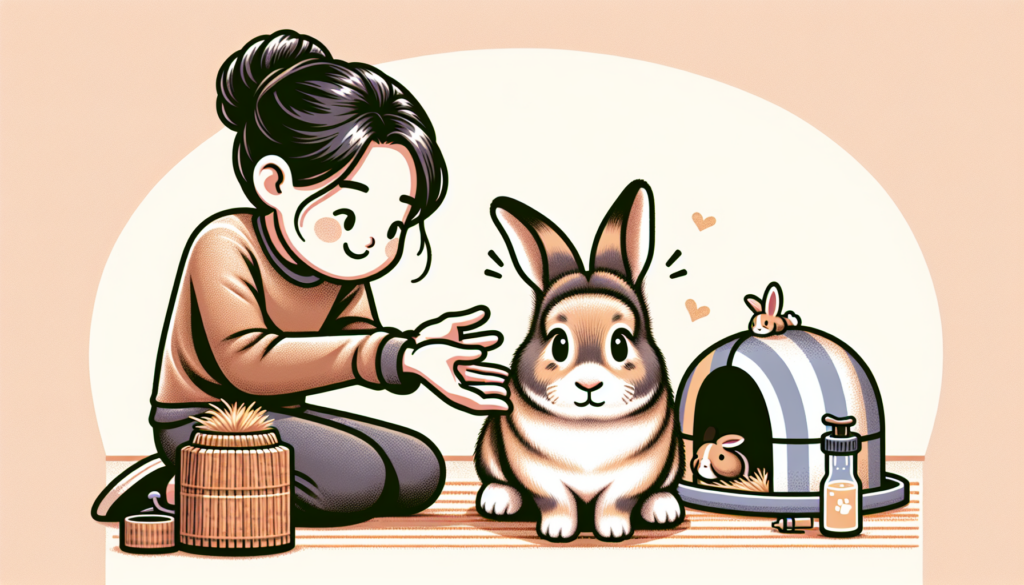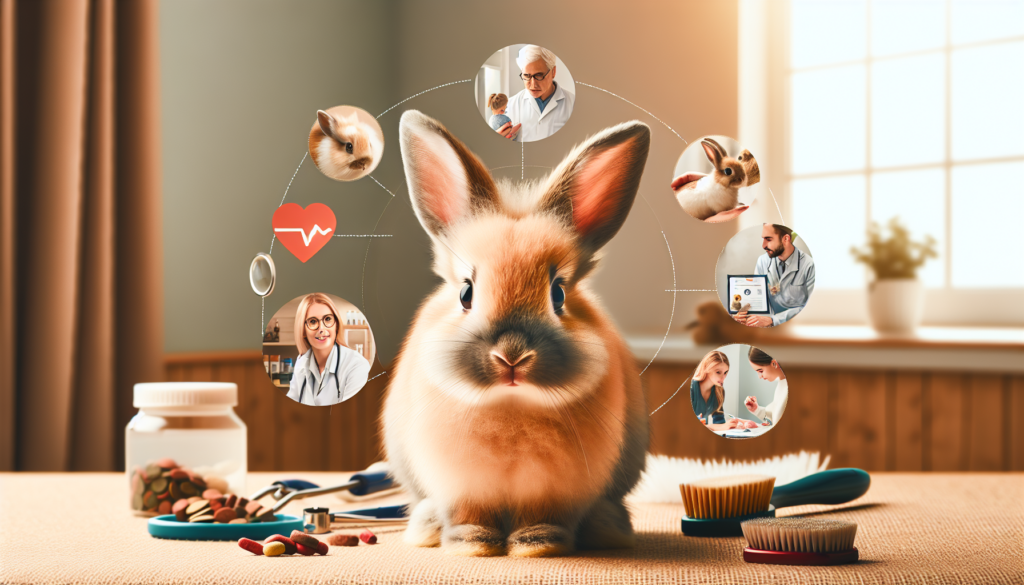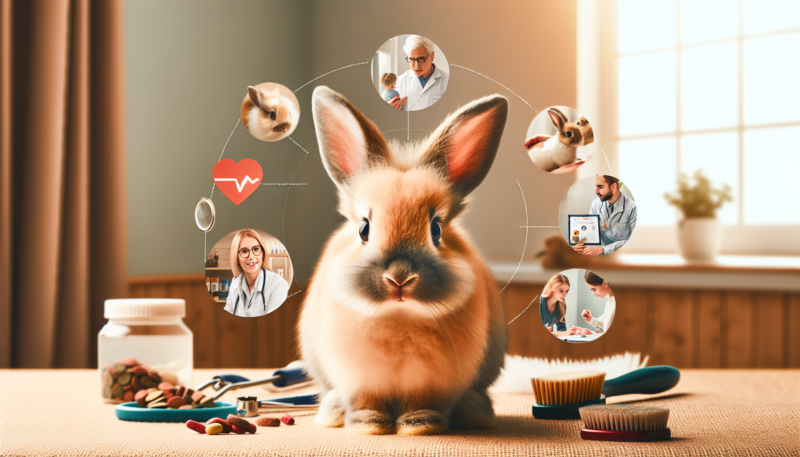If you’re looking for a new furry friend to join your family, you may have come across the adorable Netherland Dwarf rabbit. But are these pint-sized bunnies as friendly as they look? Netherland Dwarfs are known for their cute appearance and tiny size, but their personality is what truly sets them apart. Despite their small stature, these rabbits have big personalities and are often described as friendly and sociable pets. In this article, we will explore whether Netherland Dwarfs make friendly pets and what you can expect if you decide to bring one into your home.
Personality of Netherland Dwarfs
Playful and active nature
Netherland Dwarfs are known for their playful and active nature. They love to hop and explore their surroundings, making them a joy to watch. These small rabbits are full of energy and always ready to engage in interactive playtime with their owners. Their lively personalities make them excellent companions for families and individuals who enjoy an active lifestyle.
Curious and intelligent
Netherland Dwarfs are curious animals with an intelligent disposition. They are always eager to investigate their surroundings and learn new things. This curiosity and intelligence make them engaging pets, as they are often found amusing themselves with toys and puzzles. They can quickly learn tricks and respond to training, making them a delight to interact with.
Affectionate and sociable
Netherland Dwarfs have a reputation for being affectionate and sociable pets. They enjoy human company and thrive on attention and affection. These rabbits make wonderful companions and are known to form strong bonds with their owners. They seek out cuddles and petting, making them perfect for those who crave a loving and interactive relationship with their pets.
Interaction with Children
Gentle and patient with kids
Netherland Dwarfs are known for their gentle and patient nature, making them well-suited for households with children. They are tolerant of the antics of young ones and rarely show aggression. These rabbits understand that children may not always handle them correctly and are forgiving of any accidental roughness.
Supervision and teaching required
While Netherland Dwarfs are generally good with children, it is important to remember that their small size makes them delicate. It is crucial to supervise interactions between young children and rabbits to ensure the safety of both parties. Teaching children how to handle rabbits gently and respectfully is essential to maintain a harmonious relationship.
Forming bonds with children
Netherland Dwarfs have a special ability to form bonds with children. Their affectionate nature enables them to create strong connections with their little human friends. These rabbits often become a child’s loyal and devoted companion, providing comfort and companionship throughout their childhood.

Compatibility with Other Pets
Getting along with dogs
Netherland Dwarfs can get along well with dogs when introduced properly. It is important to introduce the rabbit and dog in a controlled environment and closely supervise their interactions. With time and patience, many rabbits and dogs can form friendships, providing endless hours of entertainment and companionship for both species.
Bonding with cats
Netherland Dwarfs can also bond with cats, although the process may require gradual introductions and careful monitoring. It is essential to ensure that the cat does not view the rabbit as prey. Creating a safe and secure environment for both pets is crucial in fostering a positive relationship between a Netherland Dwarf and a cat.
Socializing with other rabbits
Netherland Dwarfs are generally social animals and can coexist harmoniously with other rabbits. Introducing rabbits to each other should be done gradually and under supervision. While not all rabbits will become best friends, many Netherland Dwarfs enjoy companionship and thrive in the presence of their own kind.
Health Considerations
Common health issues
Like all pets, Netherland Dwarfs are susceptible to certain health issues. Some common health problems in this breed include dental issues, ear infections, and gastrointestinal stasis. Regular veterinary check-ups can help detect and address these issues early on, ensuring the overall well-being of the rabbit.
Regular veterinary care
To keep Netherland Dwarfs in good health, regular veterinary care is essential. This includes vaccinations, routine check-ups, and dental examinations. By staying proactive in their healthcare, you can minimize the risk of potential health complications and provide a happy and healthy life for your furry friend.
Exercise and diet requirements
Netherland Dwarfs, despite their small size, have high energy levels and require regular exercise. Providing them with sufficient space to roam and explore, as well as engaging them in interactive play sessions, is crucial for their physical and mental well-being. Additionally, a balanced diet, consisting mainly of high-quality hay, fresh vegetables, and a small amount of pellets, is important in maintaining their overall health.

Training and Litter Box Habits
Trainability of Netherland Dwarfs
Netherland Dwarfs are intelligent and trainable rabbits. With patience and consistency, they can be taught various tricks and commands. Positive reinforcement methods, such as rewarding them with treats and praise, tend to be the most effective approach when training these intelligent creatures.
Litter box training
Netherland Dwarfs can be litter box trained relatively easily due to their natural cleanliness. By providing them with a suitable litter box filled with rabbit-safe litter and consistently reinforcing the use of it, you can have a rabbit that understands where to go to do their business, making clean-up a breeze.
Positive reinforcement
Using positive reinforcement techniques is key when training Netherland Dwarfs. These rabbits respond well to praise, treats, and affection, so offering rewards for desirable behavior can help reinforce their training. Consistency and patience are important when using positive reinforcement, ensuring that your Netherland Dwarf understands what is expected of them.
Handling and Care
Proper handling techniques
Handling Netherland Dwarfs requires gentle and careful techniques due to their small size and fragile bodies. It is important to support their hindquarters to prevent injury and to avoid placing an excessive amount of pressure on their spine. When picking them up, provide a secure and supportive hold to ensure their safety and comfort.
Grooming needs
Netherland Dwarfs have a dense and soft coat that requires regular grooming. This includes brushing their fur to prevent matting and removing any loose hairs. Additionally, regular nail trims and checking their ears for cleanliness and signs of infection are essential aspects of their grooming routine.
Safe living environment
Creating a safe living environment is crucial for the well-being of Netherland Dwarfs. It is important to ensure that their habitat is escape-proof and free from hazards or toxic substances. Providing them with plenty of hiding spaces, toys, and opportunities for exercise will promote their physical and mental stimulation.
Benefits of Netherland Dwarfs as Pets
Compact size for indoor living
Netherland Dwarfs’ small size makes them ideal companions for those living in apartments or smaller homes. Their compact nature allows them to thrive in indoor environments with ample space for exploration and play.
Independence and low maintenance
While Netherland Dwarfs enjoy human interaction, they also possess an independent nature. This independence, coupled with their low-maintenance grooming needs, makes them suitable pets for individuals who lead busy lives or have limited time for pet care.
Lifespan and long-term commitment
Netherland Dwarfs have a relatively long lifespan compared to other small mammals, with an average lifespan of 7 to 10 years. This means that adopting a Netherland Dwarf requires a long-term commitment to their care, ensuring that they receive the love, attention, and proper healthcare they need throughout their lives.
Considerations for First-Time Rabbit Owners
Researching rabbit care
For first-time rabbit owners, conducting thorough research on rabbit care is essential. Understanding their specific needs, diet requirements, and appropriate handling techniques is crucial in providing a healthy and happy life for a Netherland Dwarf.
Time and dedication
Owning a Netherland Dwarf requires time and dedication. They need regular interaction, exercise, and mental stimulation to thrive. Committing to spending quality time with your rabbit is imperative in building a strong bond and ensuring their well-being.
Financial responsibilities
It is important to consider the financial responsibilities that come with owning a Netherland Dwarf. This includes veterinary bills, quality food, litter, grooming supplies, and proper housing. Being financially prepared ensures that you can provide the necessary care for your furry friend.
Netherland Dwarf Breeders and Adoption
Finding reputable breeders
When looking to purchase a Netherland Dwarf, it is essential to find reputable breeders who prioritize the health and well-being of their rabbits. Reputable breeders will provide proper care for their rabbits, including medical care, socialization, and a clean living environment.
Rescue and adoption options
Adopting a Netherland Dwarf from a rescue or shelter is another option to consider. Many rabbits are in need of loving homes, and adopting from a rescue not only provides a forever home for a deserving rabbit but also supports the mission of animal welfare organizations.
Considerations for choosing a rabbit
When selecting a Netherland Dwarf, consider factors such as temperament, age, and health. Spending time with the rabbit before making a decision can help determine if their personality matches your lifestyle and preferences.
Conclusion
Netherland Dwarfs make friendly and lovable pets. Their playful and active nature, along with their curiosity and intelligence, make them engaging companions. They are gentle and patient with children, getting along well with dogs, cats, and other rabbits with proper introductions. Proper care and regular veterinary attention are essential for their well-being, and training and litter box habits can be easily established with positive reinforcement. Netherland Dwarfs are suitable for first-time rabbit owners, but thorough research, time, dedication, and financial responsibility are crucial considerations. Whether obtained from reputable breeders or rescues, Netherland Dwarfs bring joy and companionship to their owners, making them a delightful addition to any family.
